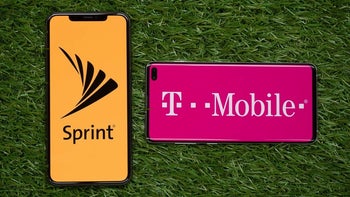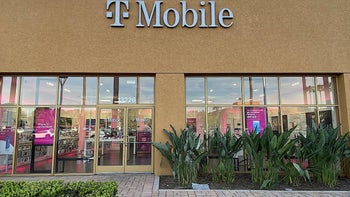Record T-Mobile year signals end of carrier price wars, but the Sprint merger weighs on 2020

On the cusp of a white knuckles court decision whether it will be allowed to merge with Sprint, T-Mobile just sent us a breathtaking annual report, detailing a customary story of growth and loyalty, but this time of particularly good financials, too.
When a company focuses on growth and market share expansion it is usually the users of its products and services that benefit in low prices and enticing benefits. This explains how T-Mobile became and remains everyone's favorite underdog of a carrier, even though its plan prices are now more in lockstep with Verizon's or AT&T's than they were in the beginning of this phase.
T-Mobile annual revenue and profits
Nowhere is T-Mobile's subscriber loyalty exemplified better than in the success story that is the 2019 earnings report. The company logged record revenue from subscribers, both in total numbers, and from core services, and broke it down for us:
- Record Service revenues of $8.7 billion, up 6% in Q4 2019 - up 6% to $34.0 billion in 2019
- Record Total revenues of $11.9 billion, up 4% in Q4 2019 - up 4% to $45.0 billion in 2019
- Strong Net income of $751 million, up 17% in Q4 2019 - up 20% to $3.5 billion in 2019
- Diluted earnings per share (“EPS”) of $0.87, up 16% in Q4 2019 - up 20% to $4.02 in 2019
- Record Q4 Adjusted EBITDA(1) of $3.2 billion, up 9% in Q4 2019 - up 8% to $13.4 billion in 2019
- Strong Net cash provided by operating activities of $1.5 billion, up 61% in Q4 2019 - up 75% to $6.8 billion in 2019
- Record Free Cash Flow(1) of $1.4 billion, up 15% in Q4 2019 - up 22% to $4.3 billion in 2019
T-Mobile's subscriber growth
While not as much of a success story in terms of breaking records, the user base growth is still very significant or "best in the industry," as T-Mobile calls it, pulling in subscribers from all three national carriers. The all-important net phone additions for the last quarter of 2019 are a million, while for the whole of the year the Un-carrier managed to scramble more than 3 million of the all important postpaid subs, hooked on its "no shenanigans" family pricing for Unlimited data plans.
- 1.9 million total net additions in Q4 2019 - 7.0 million in 2019 - 6th year in a row of more than 5 million total net additions
- 1.3 million branded postpaid net additions in Q4 2019, best in industry - 4.5 million in 2019, best in industry
- 1.0 million branded postpaid phone net additions in Q4 2019, best in industry - 3.1 million in 2019, best in industry
- 77,000 branded prepaid net additions in Q4 2019 - 339,000 in 2019
- Branded postpaid phone churn of 1.01% in Q4 2019, up 2 bps YoY - 0.89% in 2019, down 12 bps from 2018
The churn rate for the last quarter has been a bit higher than when T-Mobile was competing on price only but still the overall 2019 churn is lower than it had been for 2018, and a pretty good number overall compared to other carriers.
T-Mobile's Sprint merger and 5G rollout
Needless to say, the profit margin would have been even better were it not for the huge outlays around the merger saga with Sprint, and the massive 5G push. While T-Mobile managed to launch and cast a wide net with its 5G network on December 6, the merger fate is yet to be decided, and is affecting the Un-carrier's forecast for this year:
- Branded postpaid net additions of 2.6 to 3.6 million
- Net income is not available on a forward-looking basis
- Adjusted EBITDA target of $13.7 to $14.0 billion, which includes leasing revenues of $450 to $550 million
- Cash purchases of property and equipment, including capitalized interest of approximately $400 million, are expected to be $5.9 to $6.2 billion. Cash purchases of property and equipment, excluding capitalized interest, are expected to be $5.5 to $5.8 billion
- In Q1 2020, pre-close merger-related costs are expected to be $200 to $300 million before taxes
- Net cash provided by operating activities, excluding payments for merger-related costs and any settlement of interest rate swaps, is expected to be in the range of $7.9 to $8.5 billion
- Free Cash Flow, excluding payments for merger-related costs and any settlement of interest rate swaps, is expected to be in the range of $5.4 to $5.8 billion
Since we don't know how the cards will fall with Federal Judge Victor Marrero, T-Mobile has provisioned a hefty sum for preparation in its 2020 outlook, and no forward-looking profit numbers, just its expected growth rate. The decision could come as early as the spring, and we'll keep you posted on the news, good or bad, when it comes to the epilogue of the merger saga.










Things that are NOT allowed: